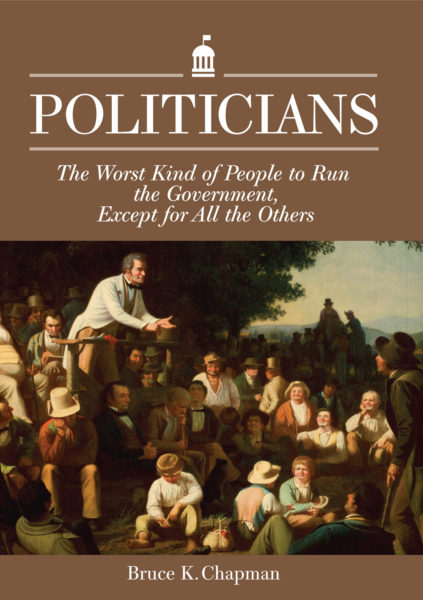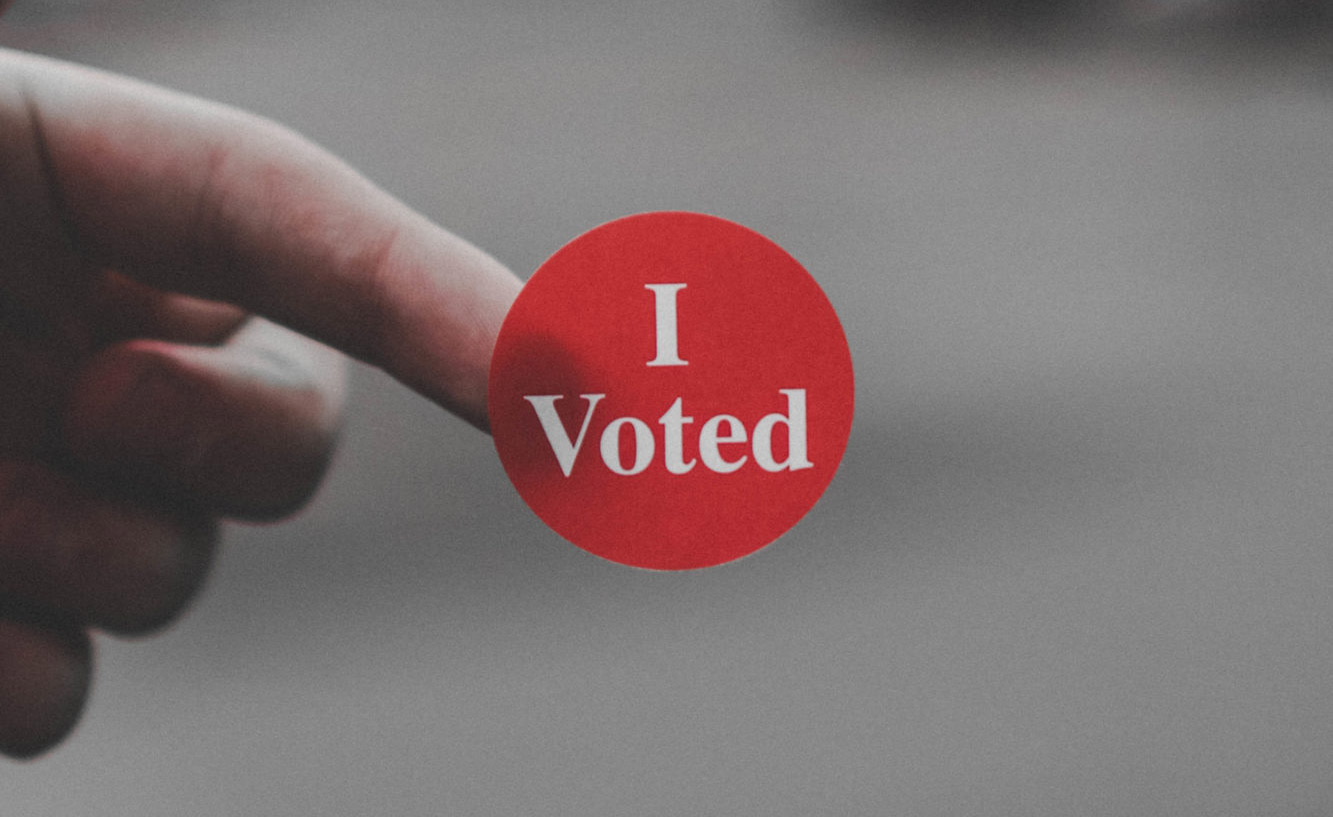Bruce Chapman’s Newest Book Shows How the Anti-Speech Lobby has Damaged Citizen Participation in Politics
Originally published at Institute for Free SpeechWhat kind of people do we want running the government? Former Washington Secretary of State, diplomat, and current Chairman of the Board of the Discovery Institute, Bruce Chapman, endeavors to answer that question in his latest work.

The title of Chapman’s new book, Politicians: The Worst Kind of People to Run the Government Except for All the Others, borrows from the classic quote about democracy oft attributed to Winston Churchill. In Politicians, Chapman examines the paradox of why people have so little faith in the politicians they choose to send to Washington, D.C. If politicians are responsible to the wishes of the people, why do Americans believe they hold too much power? Why are unelected bureaucrats viewed as having too little power?
The complete answers to these questions are much too complex for the purposes of this short book review. Chapman, however, posits a few interesting ideas for what has partially caused this sentiment among the American people. One particularly interesting theory Chapman considers is that the relative weakening of political parties has stifled political involvement. As a result, many Americans feel estranged from the political process.
Chapman traces a major weakening of political parties to the explosion of campaign finance laws, specifically the 2002 regulations passed by Congress in legislation commonly known as McCain-Feingold. While many see campaign finance restrictions as affecting only the wealthy, Chapman alludes to how the strongest effects are felt by everyday Americans at the local level.
A key provision in McCain-Feingold prevents national parties from sending significant donations to state and local parties. Making matters worse, McCain-Feingold stipulated that state and local parties must follow burdensome federal regulations when they promote candidates in federal elections.
Political parties provide an avenue for political novices to get their first experience in the political process, mostly on the state or local level. Through political parties, many people even get to know their elected representatives first-hand. As state and local parties’ funding has dried up due to McCain-Feingold, so too have opportunities to get involved.
Beyond any interaction with political parties, many Americans first foray in politics is donating either time or money to a friend running for political office. Most citizens get their political start in contests for small offices, such as school board or city council, where the cost of a campaign is minimal. But due to reporting requirements designed for much larger races, even very small donations can bring large headaches from the paperwork required to comply with a complex web of local, state, and federal laws.
As a result, candidates for local office often choose to self-finance rather than deal with the intense amount of time – and paperwork – required when asking friends for small donations. In Politicians, Chapman shares an anecdote of a woman running for village council in Ohio. (In full disclosure, the anecdote is about IFS Chairman Bradley A. Smith’s wife.) Since she would have had to comply with complex campaign finance requirements after raising just $100 for her race, she instead chose to self-fund the entire $600 she spent. Because of this low reporting threshold, many of her friends and neighbors didn’t get involved. This story highlights how many people’s first foray into politics – by supporting the campaign of a friend or acquaintance they agree with and believe in – never occurs.
A well-functioning democracy with politicians responsive to the concerns of their constituents requires an involved and engaged citizenry. As proponents of McCain-Feingold and other infringements on political speech have worked to pass laws to ostensibly prevent corruption, Chapman explains how these so-called “reformers” have cut everyday individuals out of the political process. Once removed, Chapman argues people feel isolated from the very people they elect to office.
Continue Reading at Institute for Free Speech